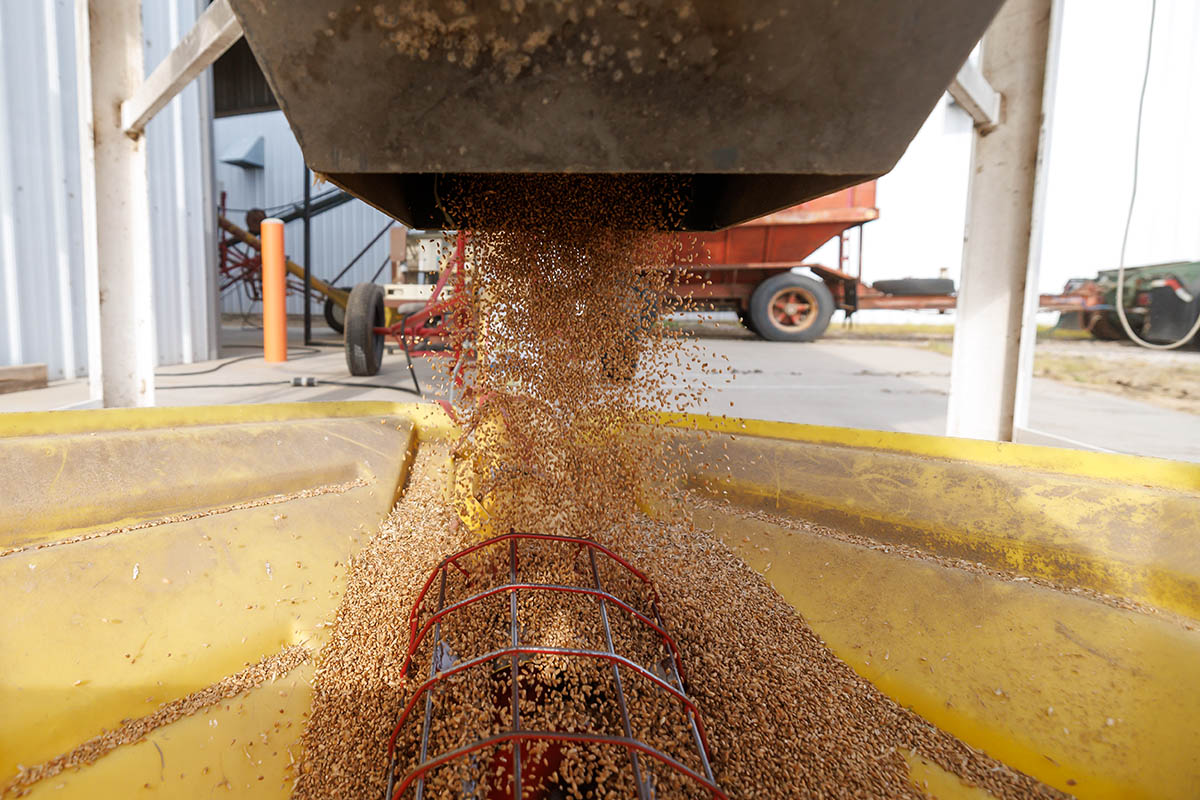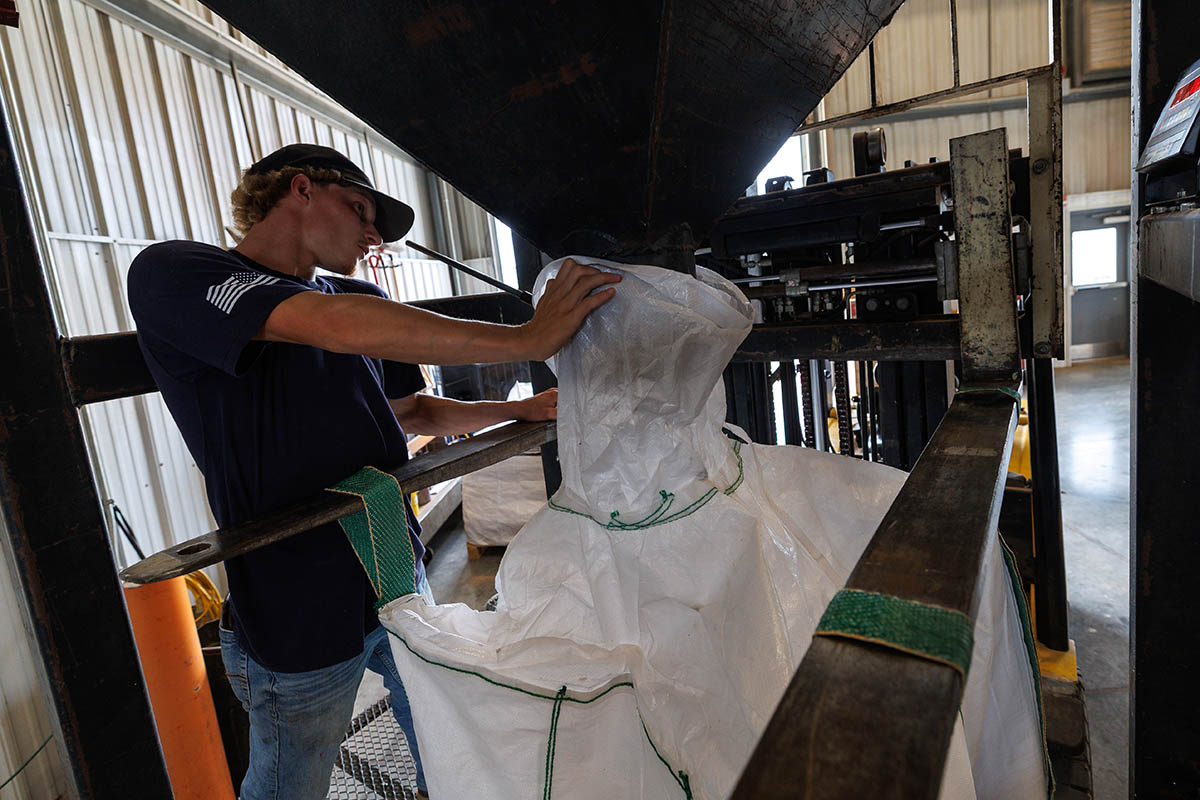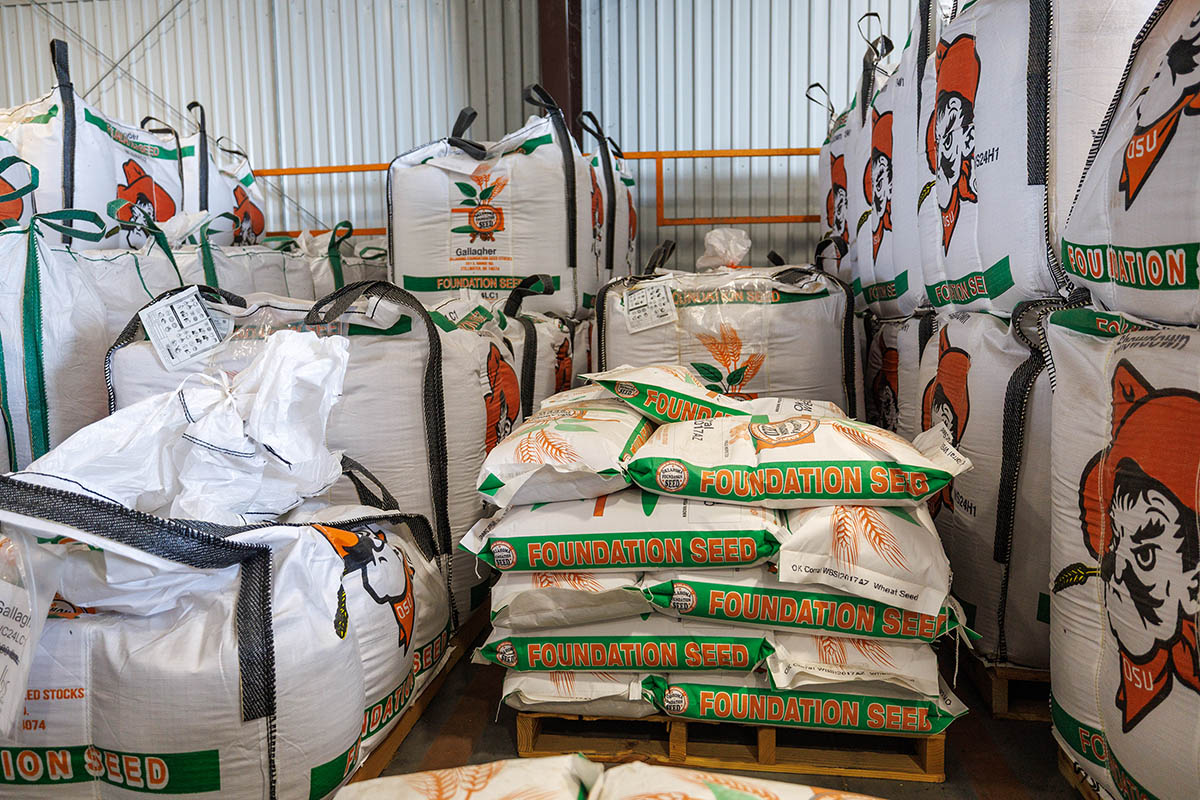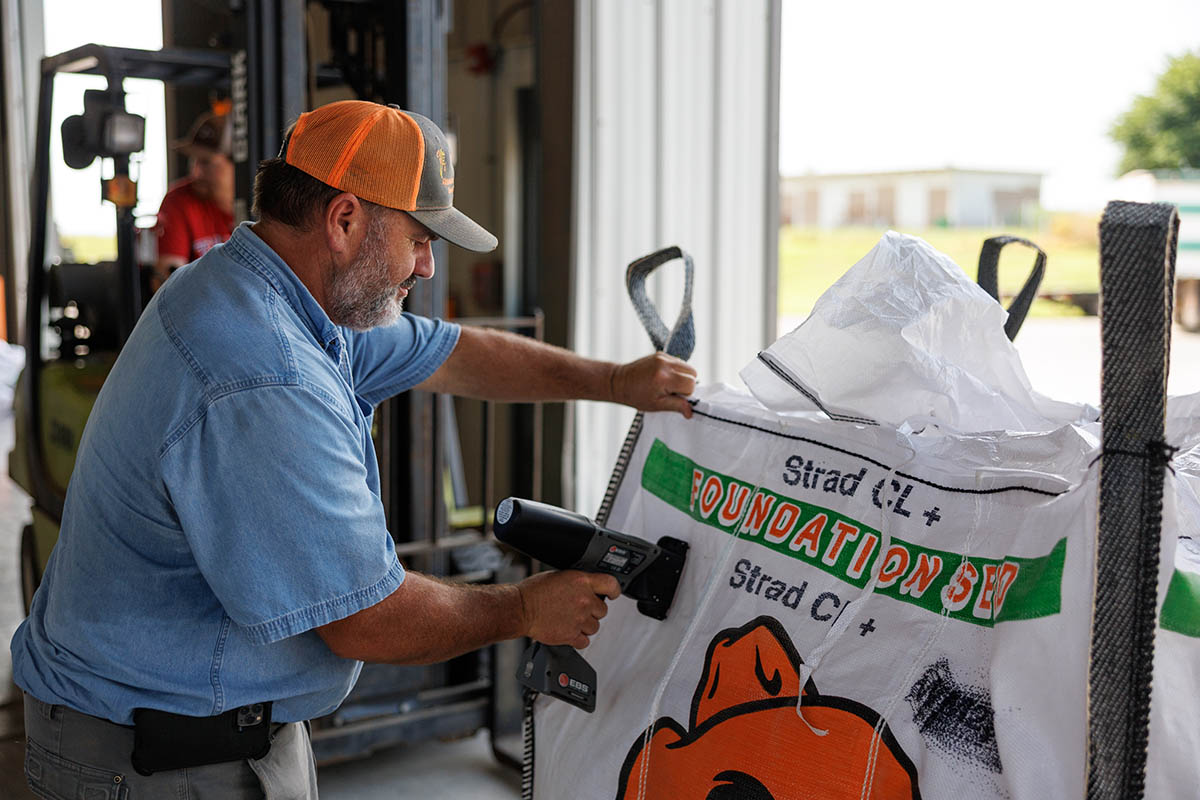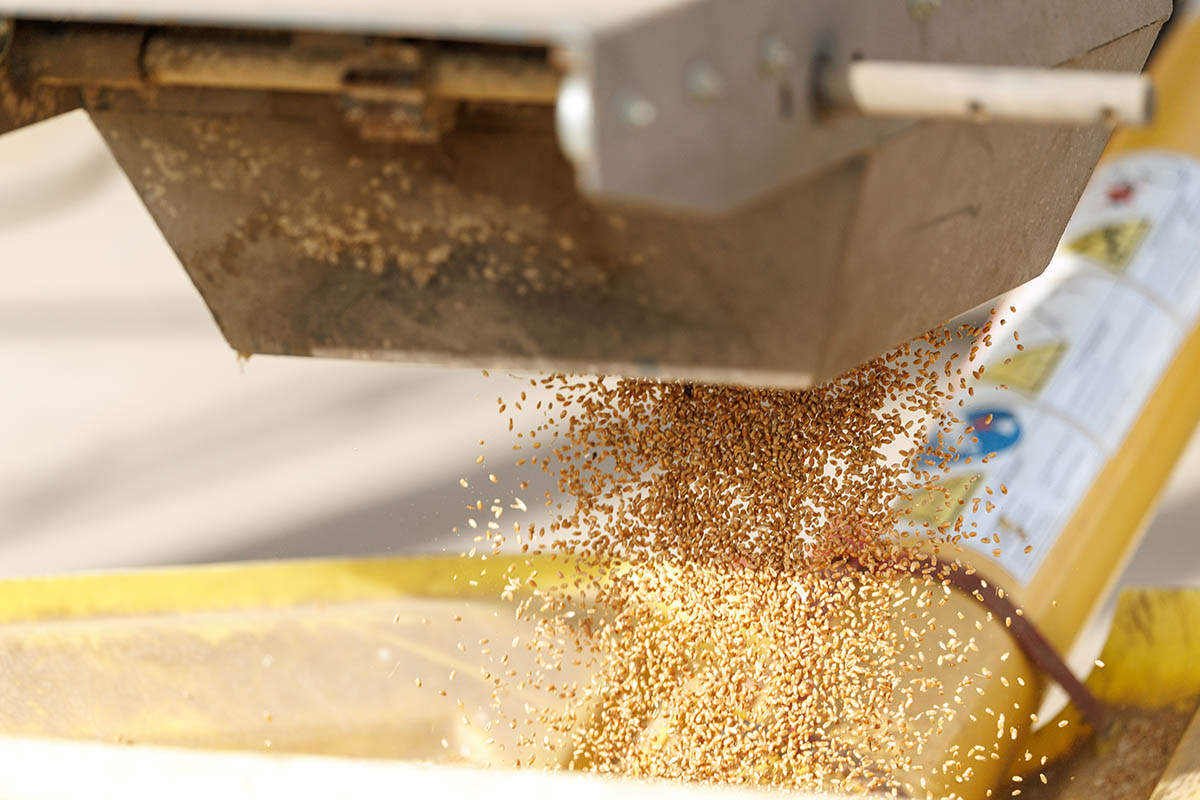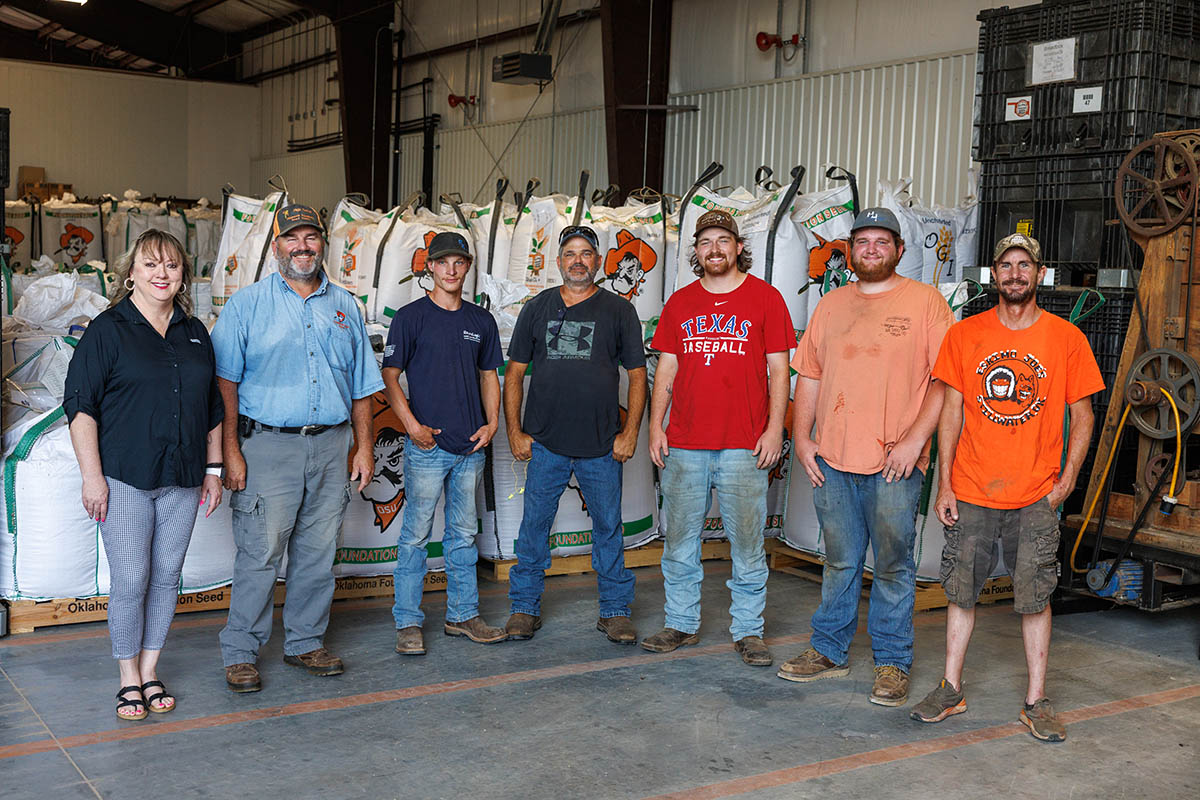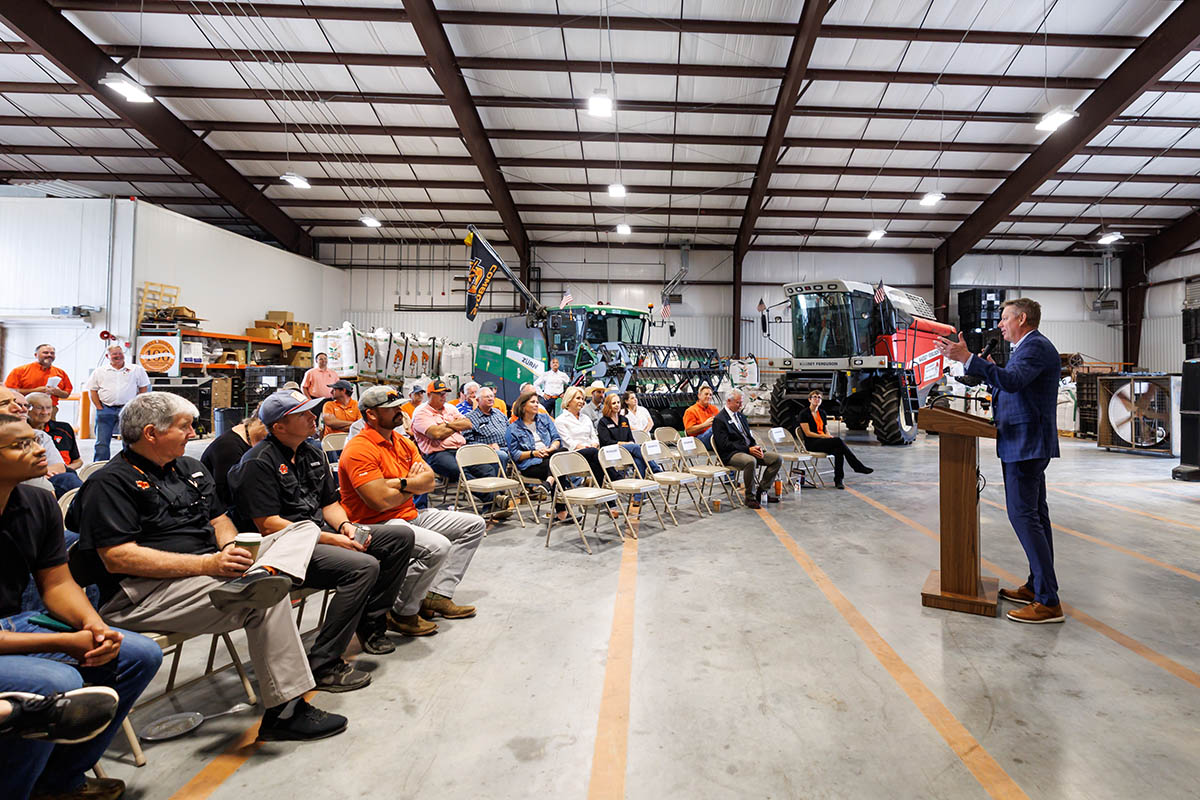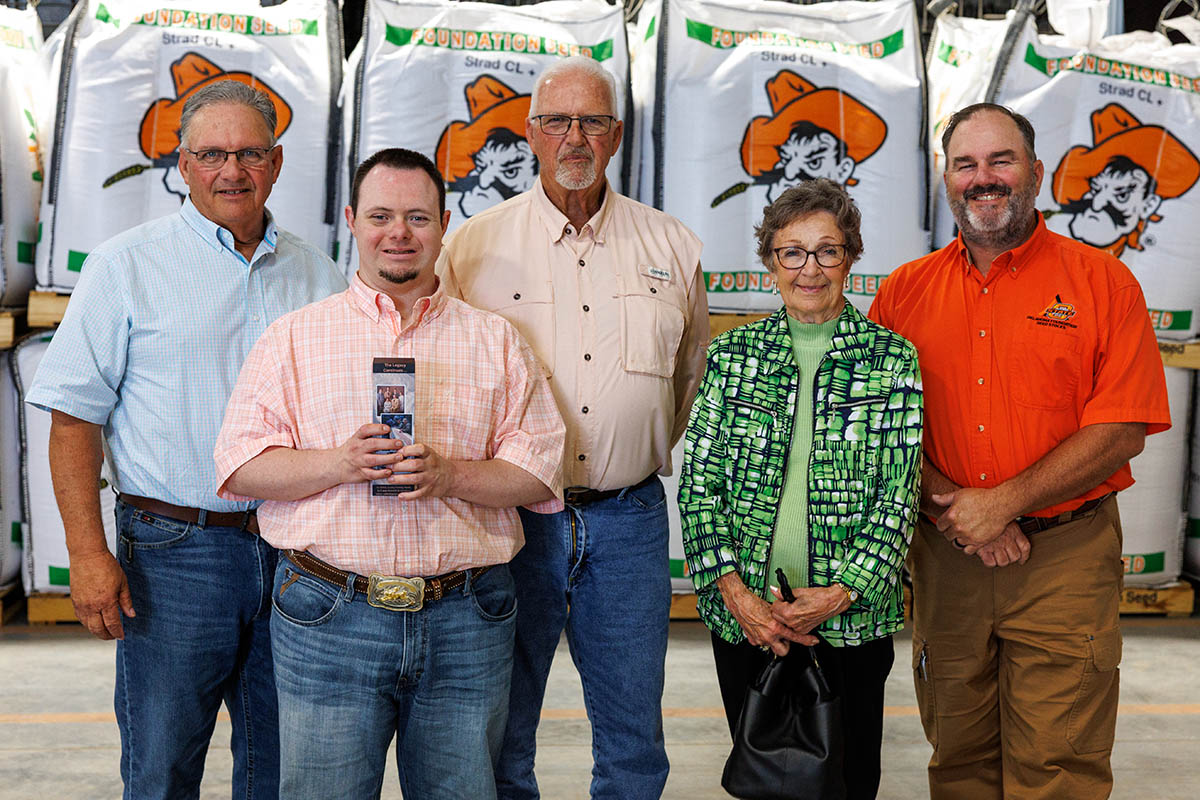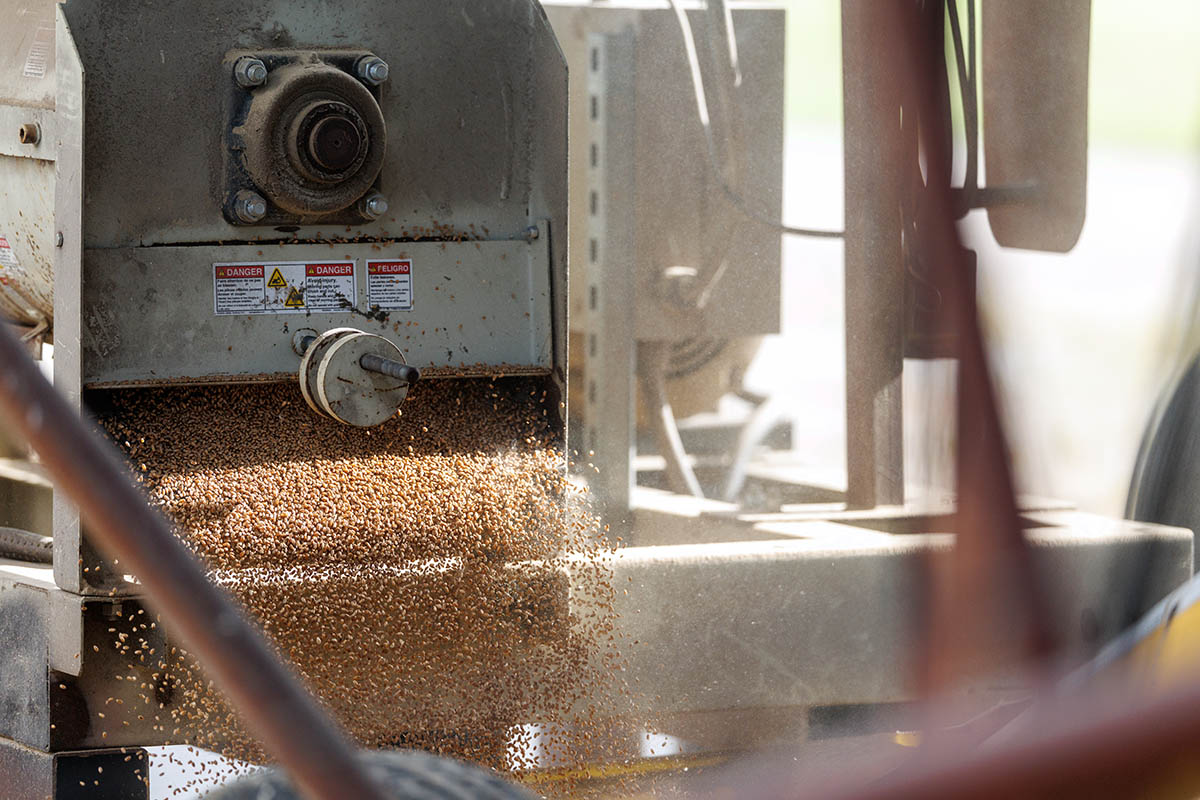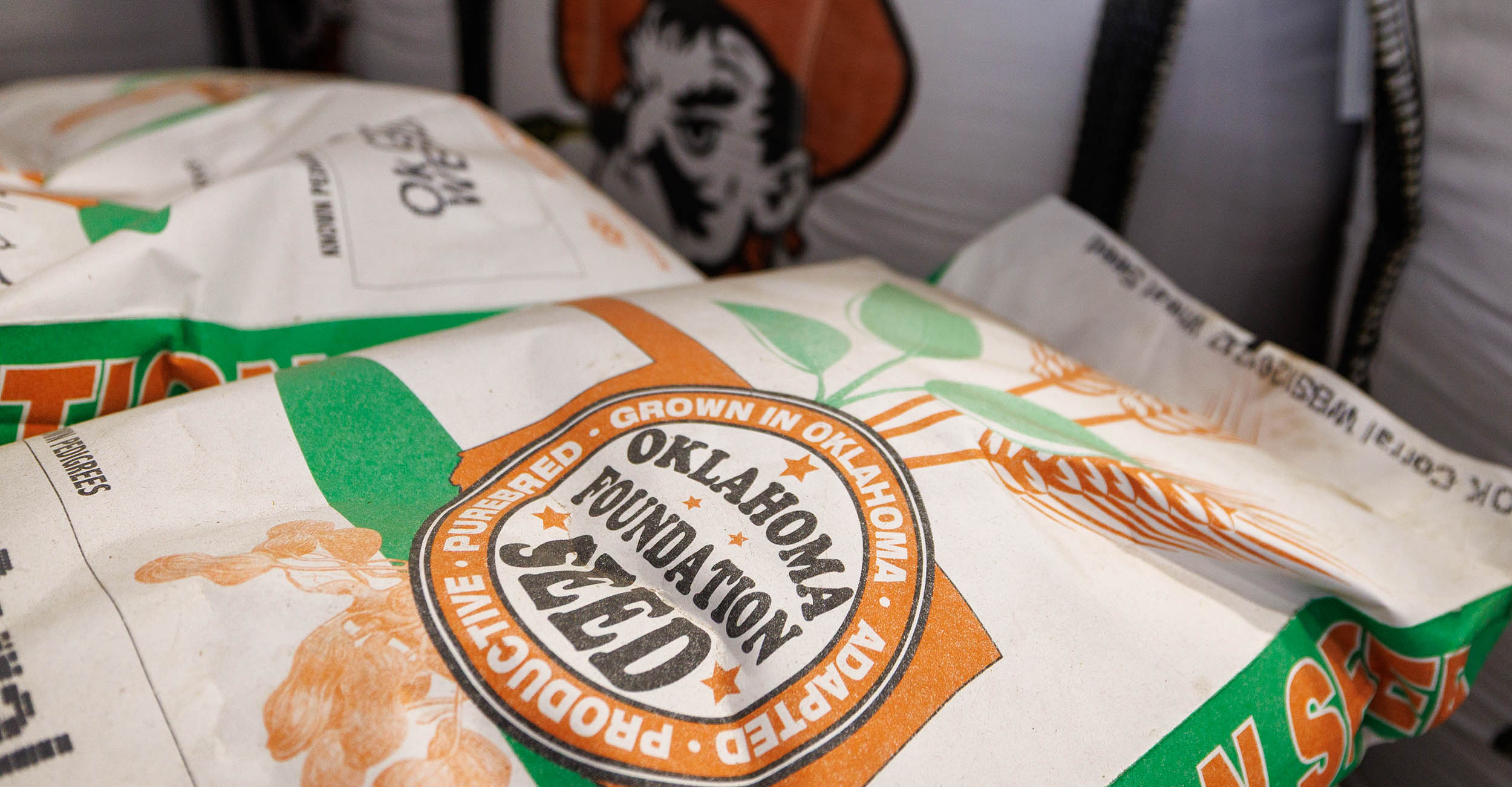
OSU Agriculture celebrates 75 years of seed partnerships with Oklahoma farmers
Friday, August 1, 2025
Media Contact: Alisa | Gore | 405-744-7115 | alisa.gore@okstate.edu
Before 1950, producing Oklahoma wheat and peanut crops looked a little different from what it does now.
Diseases, pests and yields were much more of a challenge for agricultural producers in the early 1900s, as farmers had few ways of obtaining new varieties with stronger genetics.
“I imagine wheat production would have been a game of ‘whatever you can get your hands on,’” said Dr. Brett Carver, Oklahoma State University wheat genetics chair and head wheat breeder. “There were genetics available, but it was highly unregulated and unstructured, and there were a lot of unknowns.”
Then, Oklahoma Foundation Seed Stocks Inc. was born. The nonprofit organization, which is part of OSU, was incorporated in 1950 to serve as a bridge between OSU plant breeders and certified seed growers. The facility distributes certified seeds for mungbeans, oats, peanuts, rye, barley, bermudagrass and wheat to producers. In those early years, certified crops also included soybeans, potatoes, alfalfa, tomatoes, cotton, millet, okra, watermelon, sorghum and several species of grasses.
“With wheat as an example, we take a small number of seeds from our wheat breeders and increase that to larger quantities to provide to our seedsmen across the state. We’re the state’s parent seed division,” said Jeff Wright, director of the Seed Stocks.
Seedsmen produce seeds for grain producers, and those producers grow and sell the grain from those seeds. There are four classifications of seeds: breeder seeds, foundation seeds, registered seeds and certified seeds.
“We’re taking breeder seed and producing foundation seed from it, and we sell that foundation seed to seedsmen, and they produce registered seed,” Wright said. “They can also take their registered seed and produce one more generation of seed called certified seed.”
Certified seed is what the average Oklahoma farmer buys to produce grain.
“Research shows that planting certified seed is generally 3 to 5 bushels per acre better in yield, but it really comes down to knowing what you’re planting,” Wright said of the benefits of planting certified seed as opposed to producers saving their own seed.
“If you’re planting certified, you know you’re getting weed-free seed and seed that has good germination. You’re putting quality into the ground. As far as your end-use qualities, you are getting newer varieties that the end user has better use for, such as better baking and milling qualities.”
Oklahoma Genetics Inc. was founded in 2005 as a nonprofit organization that would handle the licensing of OSU wheat varieties to protect the university’s copyrights. The organization also works with producers across the state to grow large fields of experimental varieties.
Lasley Farms, a peanut producer in Eakly, has partnered with Oklahoma Foundation Seed Stocks for
nearly 70 of its 75 years, starting with George Lasley, whose two grandsons, David
and Loyd, now run the business. The Lasley family produced the first foundation seed
peanuts somewhere around 1956. 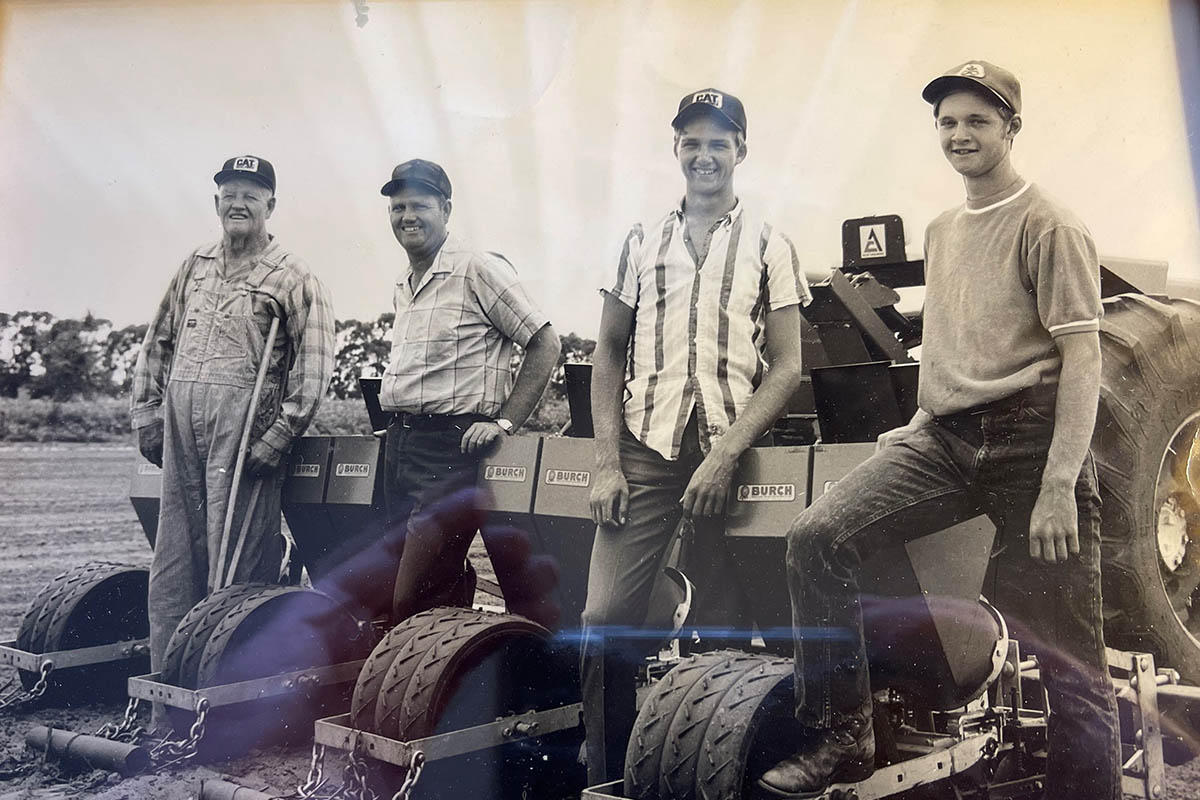
“They contacted three peanut farmers down here in Caddo County, and grandaddy was the only one who had irrigation and the only one who had made a crop that year,” Loyd Lasley said. “He started growing and shelling peanuts for the foundation, and we are still doing it to this day.”
David Lasley said the family’s biggest goal and challenge with the partnership has always been maintaining the purity of the foundation seeds.
“As a teenager, I remember when we’d have a cold front coming in and everyone was in high gear trying to get peanuts harvested, but we weren’t able to do that because we had to vacuum every peanut out of a combine between varieties. Everyone else was blowin’ and goin’, and we were sitting there trying to blow every peanut out of every crack in that combine,” David Lasley laughed.
David said now that their business sells peanut products for eating, maintaining purity in seeds is even more important to him.
“Some peanuts don’t work as well as peanut candies or as roasted peanuts as others because they don’t have the same taste, and when you are putting them out for consumers, you want them to be as pure as possible,” David said.
“We’ve always enjoyed working with the foundation seed,” Loyd added. “It’s always exciting to have new breeder seed and see how it’s going to do.”
And the feeling is mutual, according to Wright.
“Nowadays, with our contract growers, they are like extended family because we see them so much,” Wright said. “Many of them have been contracted growers for way longer than I’ve been working here.”
OSU Ag Research hosted a 75th anniversary celebration for the Foundation Seed Stocks on Friday at the facility in Stillwater, where the Lasley family was honored as a longtime partner, and OSU faculty and Oklahoma Secretary of Agriculture Blayne Arthur provided various updates on Oklahoma and OSU agriculture challenges, milestones and research.
“OFSS has been a crucial part of our breeding program since its inception,” said Dr. Scott Senseman, associate vice president of OSU Ag Research. “They have successfully bridged the gap between new variety development and getting those high-quality genetics to producers. That’s something worth celebrating.”
Carver may have put it best when describing the importance of this 75-year-old focal point for Oklahoma crop agriculture.
“Oklahoma Foundation Seed Stocks provides the launchpad for putting new OSU wheat varieties into orbit for adoption by the United States wheat industry. Without it, we are a grounded spaceship,” he said.

